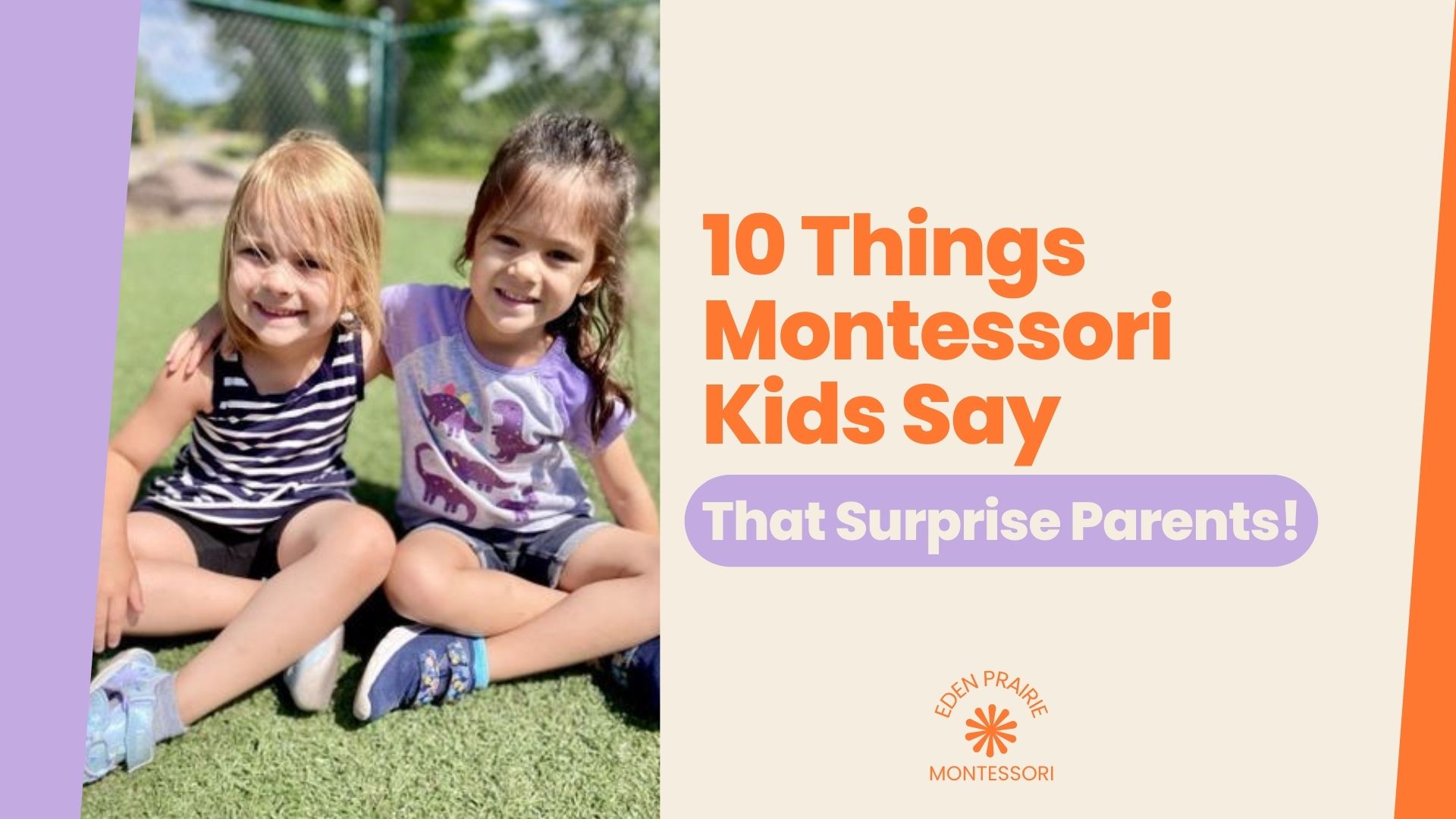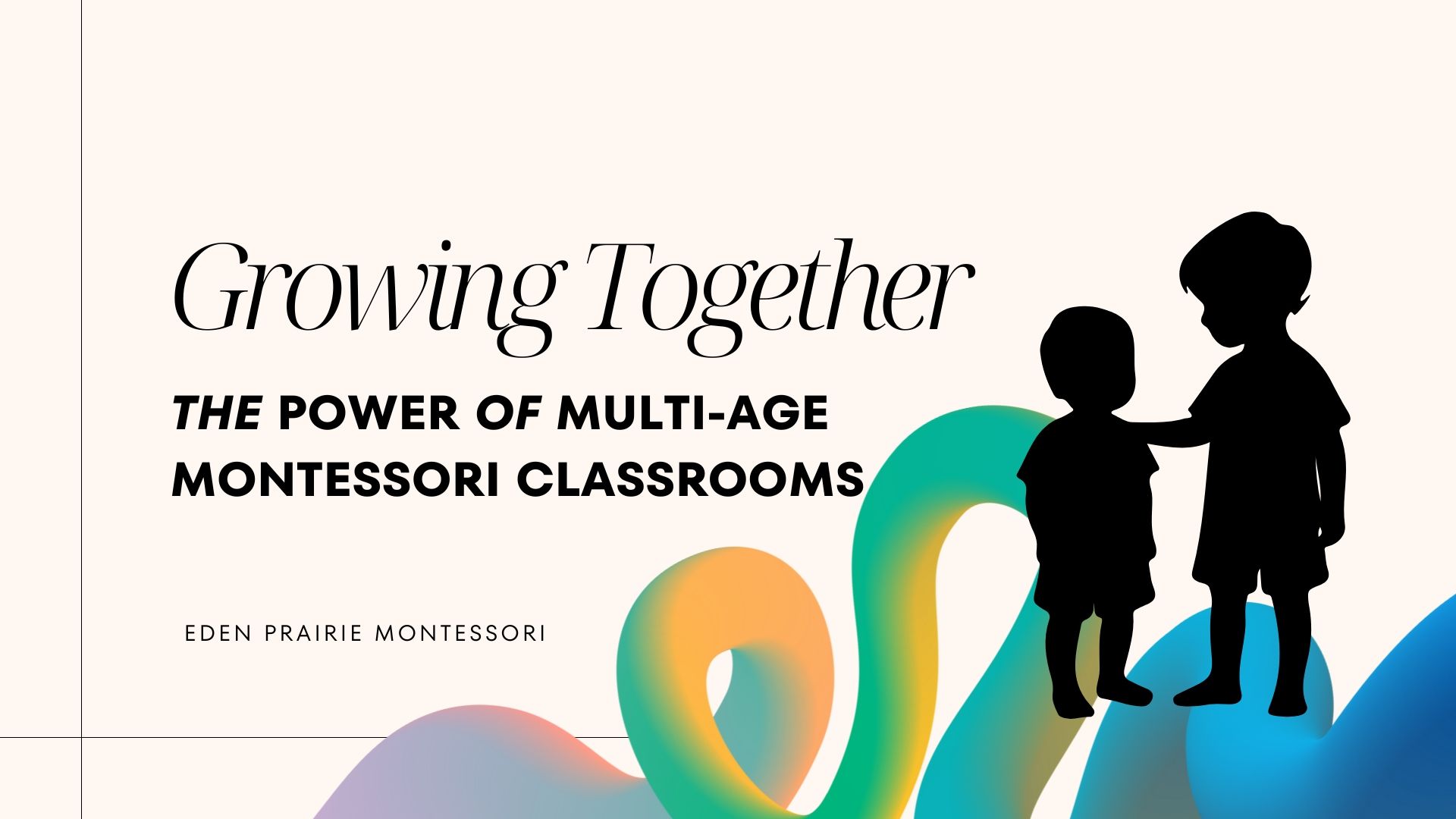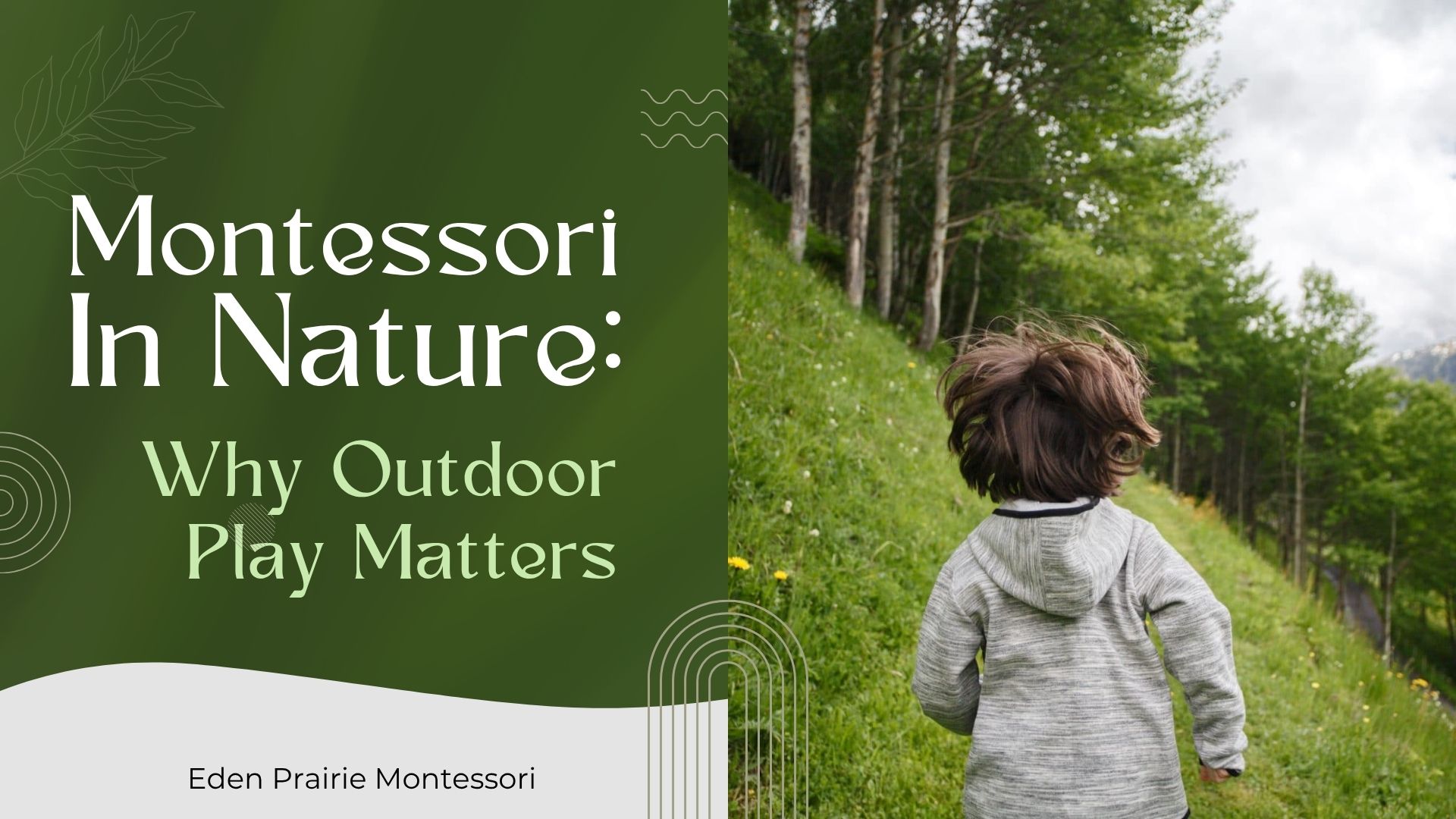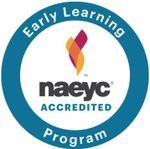Eden Prairie Montessori Learning Blogs
What is Montessori Style Parenting
Have you ever wondered what Montessori Style Parenting is all about?
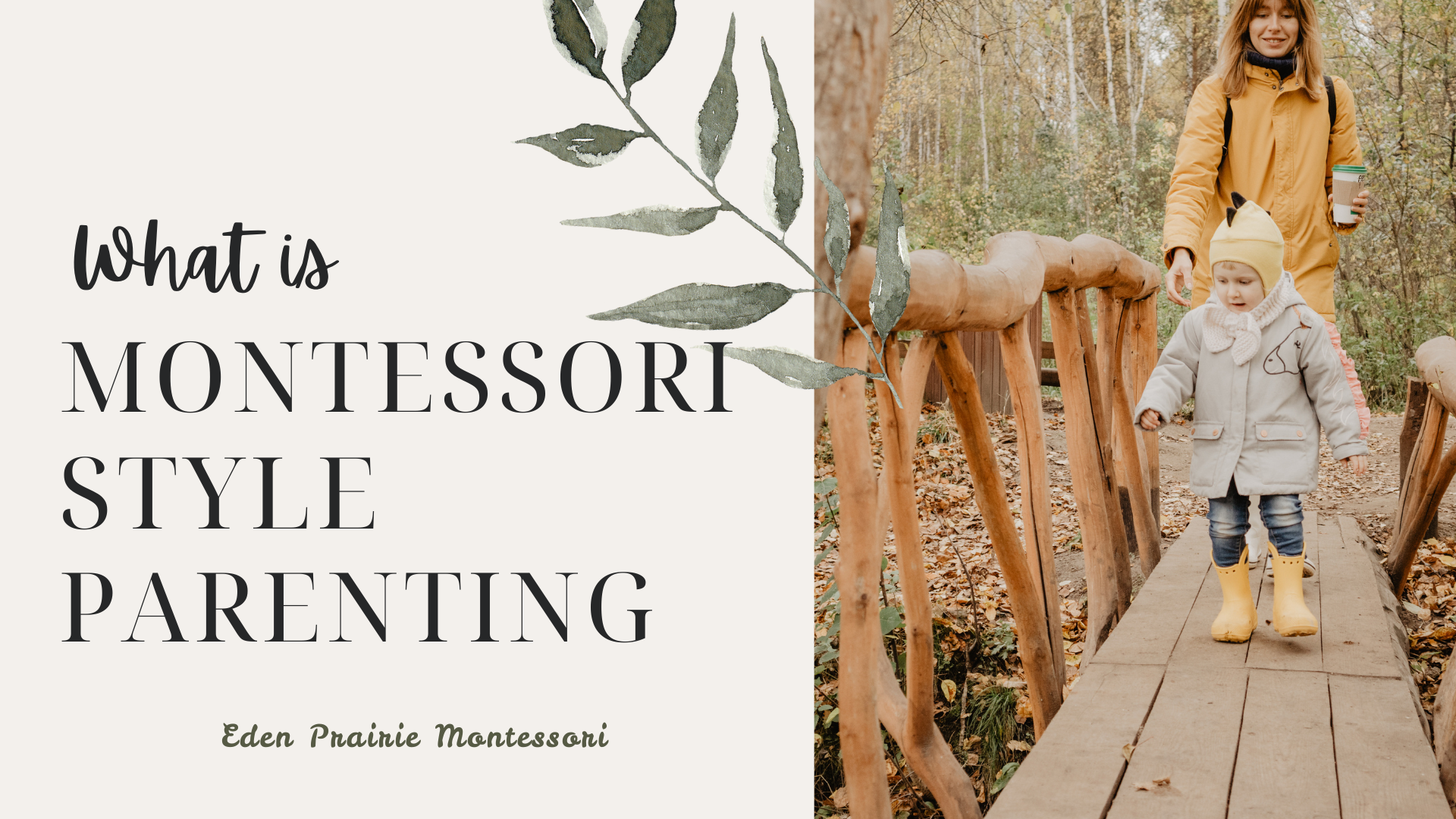
Rooted in the educational philosophy of Dr. Maria Montessori, this parenting approach emphasizes respect, independence, and hands-on learning tailored to your child's natural development. Montessori Parenting isn't about rigid rules or intensive schedules—it's a thoughtful, child-centered way to support your little one's growth, curiosity, and confidence. In this blog post, we’ll explore the core principles of Montessori Parenting and how you can incorporate them into everyday life at home....
What is Montessori Style Parenting?
Montessori Style Parenting is a calm and respectful approach to raising children, inspired by the Montessori method of education. It is based on five core principles: respecting the child, nurturing their absorbent mind, supporting sensitive periods of development, preparing their environment, and encouraging independent learning.
These guiding principles were introduced by Dr. Maria Montessori and serve as the foundation for both Montessori teaching and parenting. To effectively apply this method at home, it's essential to understand what each principle means in the context of child development.
Respecting the Child
In Montessori parenting, respect for the child means recognizing them as individuals with their own thoughts, preferences and personalities. Parents can show this respect in several practical ways:
- Building genuine connections: In today’s fast-paced world, it’s easy to simply go through the motions of parenting. However, building a relationship with your child requires truly knowing them, what they care about, how they feel, and what they think. Listening without interrupting and being fully present (e.g., putting down your phone during quality time) fosters trust and connection.
- Promoting independent thinking: Asking open-ended questions like “What do you think?” signals to your child that their ideas are valuable. Rather than dismissing their thoughts, guide them with thoughtful questions and give them opportunities to make choices, which strengthens decision-making skills and self-confidence.
- Modeling respectful behavior: Teach your child to respect themselves and others by setting clear boundaries and expectations. Show them that making mistakes is part of learning by offering support rather than punishment. Celebrate their individuality instead of comparing them to others and help them appreciate their own worth and potential.

Nurturing the Absorbent Mind
Montessori parents understand that young children have an “absorbent mind”—a natural ability to take in and learn from the world around them. They support this by offering rich and varied learning experiences:
- Intellectual development: Read regularly, engage in meaningful conversations, introduce different cultures, and teach a second language if possible. Encourage curiosity by answering their questions and exploring topics they find interesting.
- Emotional growth: Model respect and empathy in everyday life. Use stories to discuss values, role-play situations to teach perspective-taking, and play games that help them handle winning, losing, and frustration.
- Physical activity: Encourage your child to explore movement through play, nature walks, or age-appropriate sports. Let them participate in household chores that match their interests and abilities.
- Social experiences: Demonstrate healthy friendships, plan playdates, and expose your child to diverse cultures through food, events, and community experiences.
Encouraging Sensitive Periods of Learning
Children go through phases - known as sensitive periods - when they are particularly drawn to learning specific skills. Montessori parents recognize and encourage these times by:
- Observing: Pay attention to what your child talks about and engages in. Ask questions to better understand what excites them: is it the activity itself, the people involved, or the process?
- Facilitating:
- Provide opportunities for exploration (e.g., books about planets or a trip to the planetarium).
- Enroll them in classes or activities aligned with their interests (e.g., art lessons).
- Assign tasks that build their confidence in a new skill (e.g., setting the table).
- Celebrate progress by acknowledging how each step supports their learning journey.

Preparing the Environment
A key aspect of Montessori parenting is creating a prepared home environment that encourages independence and focused learning:
- Providing appropriate tools: Offer child-sized tools and equipment (like a step stool or smaller utensils) so your child can manage tasks independently.
- Creating dedicated spaces: Set up areas for learning and play, such as a quiet reading corner or a tidy art station, and give your child uninterrupted time to explore.
- Teaching organization: Keep toys and frequently used items accessible and show your child how to return things to their proper place after use.
Encouraging Independent Learning
Montessori parents recognize that children are capable learners and actively support their autonomy, encouraging them to learn by themselves:
- Fostering curiosity: Avoid micromanaging; instead, allow your child to explore safely and pursue their interests without constant oversight. Let them focus on their activities without interruption.
- Promoting problem-solving: Rather than giving answers immediately, ask your child what they think. Use guiding questions to help them figure things out and let them experience the outcomes of their decisions.
- Encouraging freedom within limits: Give your child the freedom to choose what to work on or play with, and allow them to complete tasks (for example, dressing themselves or preparing snacks) even if it's messy or takes extra time. These moments build competence and resilience!
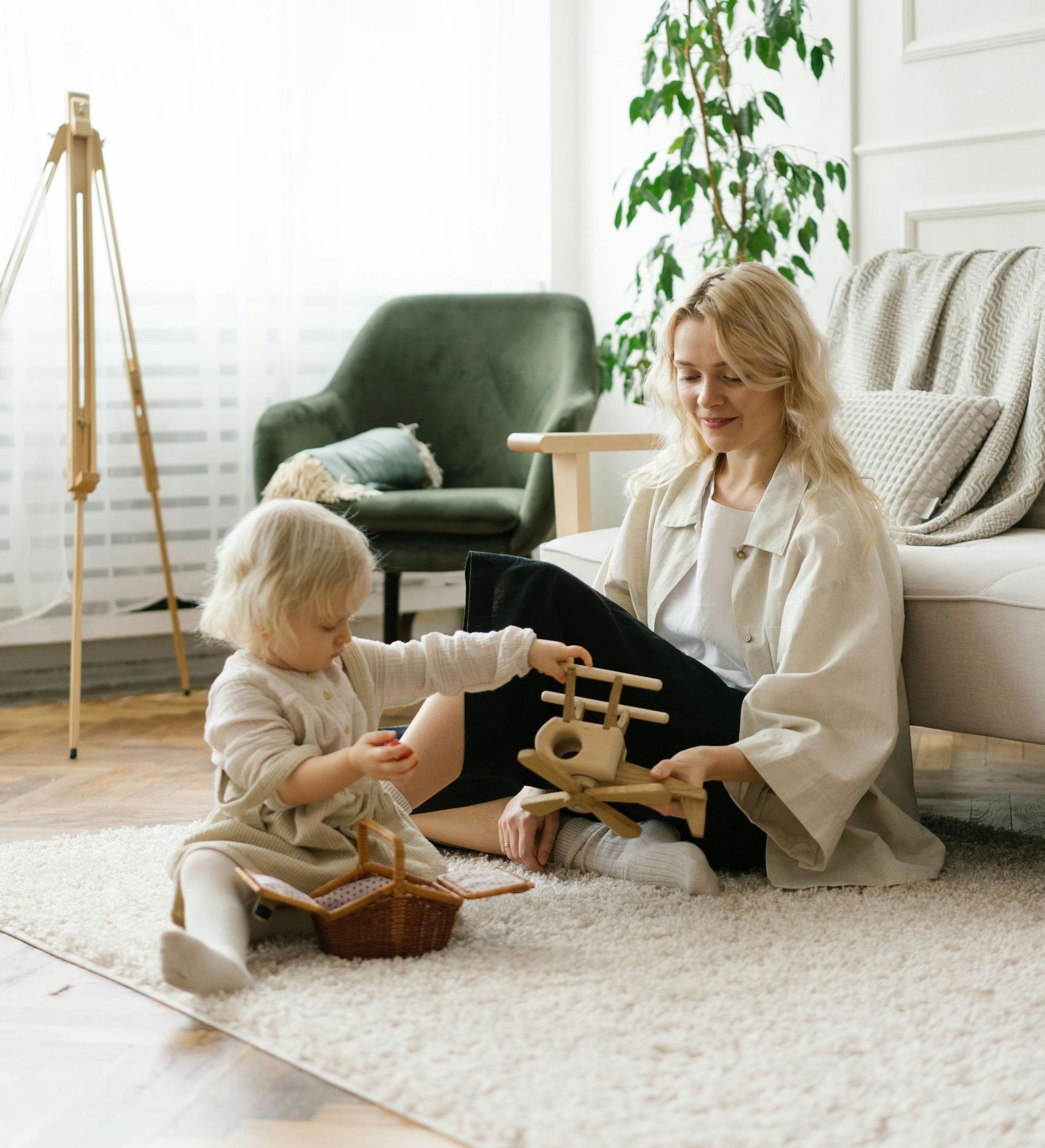
Benefits of Montessori Parenting
Montessori-style parenting offers significant benefits for both parent and child. It helps children become empowered, curious, and independent individuals. Specifically, it:
- Builds confidence and competence by recognizing and honoring each child’s unique strengths.
- Fosters a love of learning by encouraging exploration at the child’s own pace.
- Develops self-reliance through autonomy and choice within a supportive environment.
- Promotes emotional well-being by respecting the child’s needs and reducing behavior issues.
By embracing Montessori parenting, parents provide children with both freedom and support. This nurtures a child who is confident, enthusiastic about learning, able to think critically, work independently, and cooperate respectfully with others.
“Parents learn just like their children do: by seeing and by doing. That’s why we welcome interested families to visit Eden Prairie Montessori while school is in session. Observing our beautiful school, our fun playground, our happy children and their proud presenters – it’s the best way to see what we do!”



